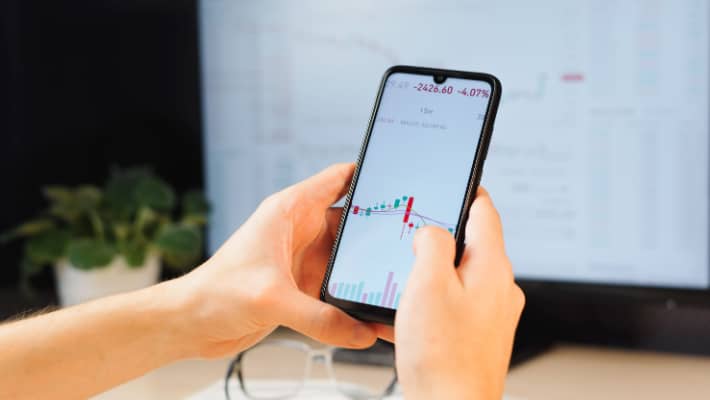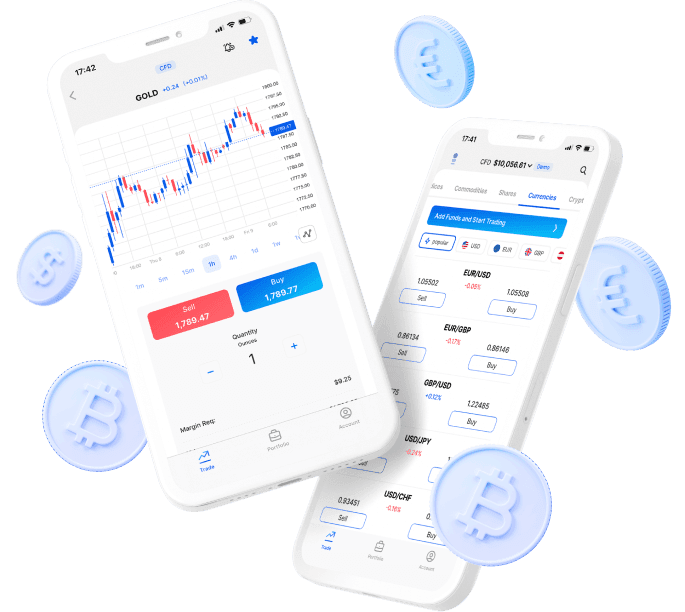Friday Nov 24 2023 11:43

10 min

Trading bonds online gave a whole new advantage to traders and investors. It becomes faster and more time-efficient, allowing traders to achieve their financial goals quickly. With just a simple click, bonds online provide access to a wide variety of fixed-income securities you can choose from.
In this guide, we’ll walk through the basics of trading bonds online, from choosing an online brokerage to executing trades.
Trading bonds through online brokerage accounts offer numerous advantages to fixed-income investors and traders. The 24/7 accessibility allows investors to search and trade many bonds without communicating with a broker telephonically.
These platforms often boast reduced commission rates, offering a cost advantage and enhanced price transparency compared to conventional bond brokers. Users can filter bonds based on personalised criteria instead of depending solely on a broker’s inventory. They also gain direct control over placing orders, monitoring pricing, and managing their bond portfolio.
The convenience of these platforms is undeniable, offering effortless access to accounts, comprehensive bond data, and financial statements through a secure online environment. Furthermore, their user-friendly nature ensures that even beginners can trade individual bonds seamlessly with just a handful of clicks.

The first step is selecting an online broker that provides access to the bond market. When comparing brokers, look for these key factors:
Bond inventory: Make sure the broker offers a wide selection of individual bonds from both government and corporate issuers. Some only provide access to bond ETFs.
Commissions and fees: Bonds online may incur commission fees, so compare costs across brokers—some charge per trade while others charge a percentage of the total transaction. It’s also worth noting that some brokers might offer promotional rates or waive fees for new customers, so look out for any deals that might be beneficial in the short term.
Tools and research: When looking for bonds online, it is important to seek out robust screening tools to search for bonds. Additionally, having access to credit research and ratings can provide insight into the quality and reliability of potential bonds.
Ease of use: A user-friendly trading platform is essential for trading bonds online, and it should offer intuitive features such as real-time quotes, interactive charts, and seamless order entry functions. The site’s navigation should be straightforward and hassle-free, allowing users to easily access the tools and information they need to make informed decisions and execute trades quickly.
Among the leading CFD trading platforms, markets.com is an online broker with more than a decade’s experience helping beginner and seasoned traders. The platform is fully regulated in five major markets, including Europe and the UK.
Before trading, it’s essential to understand how bonds online are priced. Bonds are traded based on their yield, which moves inverse to price. When the yields increase, the prices of bonds decrease. Conversely, when the yields decrease, the prices of bonds increase.
A bond’s yield represents the annual interest payment as a percentage of the current price. For example, a bond with a par value of £1,000 trading for £900 with a 5% coupon would have a yield-to-maturity of around 5.56% (£50 annual interest / £900 price).
Bonds are also quoted in terms of basis points. One basis point equals 1/100th of a per cent. So if a bond yield moves from 2.0% to 2.1%, that’s a 10 basis point increase. Understanding yields and basis points is vital when searching and purchasing bonds online.
You can use markets.com’s trading calculator to calculate your hypothetical P/L (aggregated cost and charges). Using our calculator, you can quickly evaluate any position you hold or are about to open by calculating its spread, margin requirement, overnhttps://www.markets-apac.com/trade/cfd-trading-calculator/ight swap and more.
Once you have a trading account, it’s time to find attractive bonds online to add to your portfolio. Use these tips to search for and select bonds:


Join the 100.000s that have made markets.com their home for trading. Learn about trading as you grow your portfolio.
More power in our platforms
We currently cannot accept clients from your country. If you have received this message in error, please contact our support team at support@markets.com.
Contact Support

Once you’ve decided to purchase specific bonds online, it’s time to place the trade through your broker’s online platform. Follow these steps:
Trading online provides an efficient way to add bonds to your portfolio with just a few clicks. Monitor orders until complete and store confirmation records for tax reporting.
You might also like to read: How to open a free MT4 or MT5 account on markets.com
Once you’ve acquired bonds, some ongoing management is required:
The wash sale rule, however, prevents investors from claiming a loss on the sale of an investment and then buying the same or a substantially identical asset within 30 days before or after the sale. The purpose of this rule is to prevent investors from artificially creating losses for tax purposes.
Expand your knowledge with this write-up: How to diversify your portfolio for 2021
We have summarised the information you need to guarantee you capture all essential details when trading bonds online.
With the right online brokerage, trading individual bonds is simplified. The variety and yields available online can diversify income streams away from low-paying deposit accounts. By taking the time to find value and actively manage holdings, bonds remain a viable option for income-oriented investors and traders.
You can trade bonds online and other assets on markets.com. Our platform offers a contract for difference (CFD) trading option. In this type of trading, you will be speculating the price of your chosen bonds without having an actual asset.
Further expand your knowledge of markets.com’s Education Centre. We offer Trading 101, which provides tips, strategies, and how-to guides. Our trading definitions make it easier to understand complex terms. Investing time in these resources can elevate your trading proficiency and confidence.
Learn and trade with markets.com: The ultimate trading community!
When considering “CFD bonds online” for trading and price predictions, remember that trading CFDs involves a significant degree of risk and could result in capital loss. Past performance is not indicative of any future results. This information is provided for informative purposes only and should not be construed to be investment advice.”
Asset List
View Full ListLatest
View all
Thursday, 17 April 2025

7 min

Thursday, 17 April 2025

6 min

Wednesday, 16 April 2025

5 min